20040610-hemmerle-mw09-collection-001
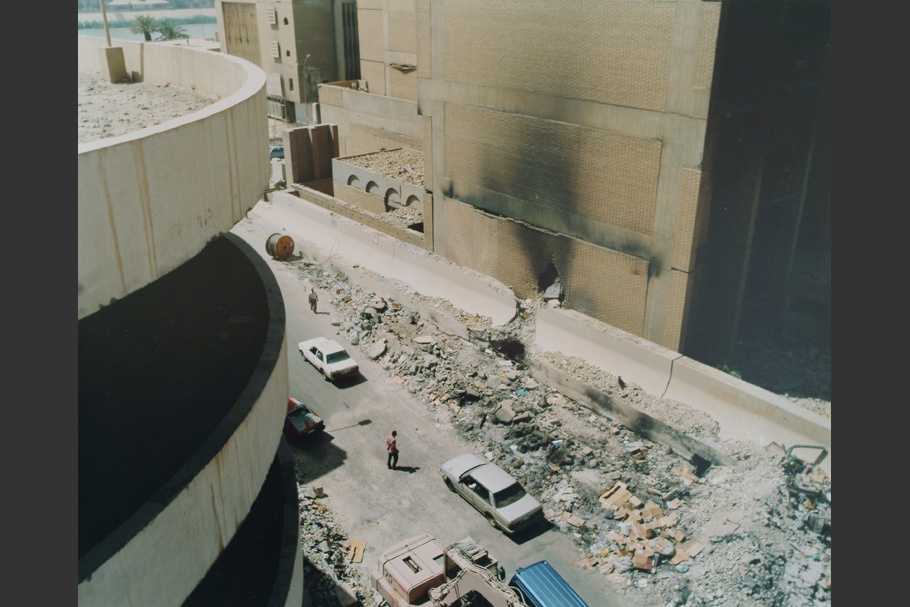
Communications Building.
Downtown Baghdad.
September, 2003.
20040610-hemmerle-mw09-collection-002
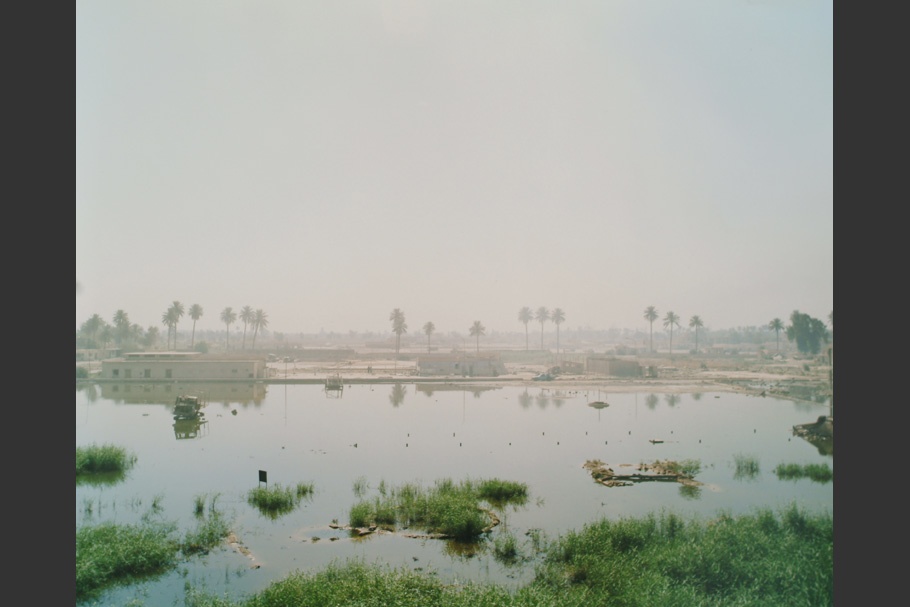
Al Rashid Military Base.
Baghdad.
September, 2003.
20040610-hemmerle-mw09-collection-003
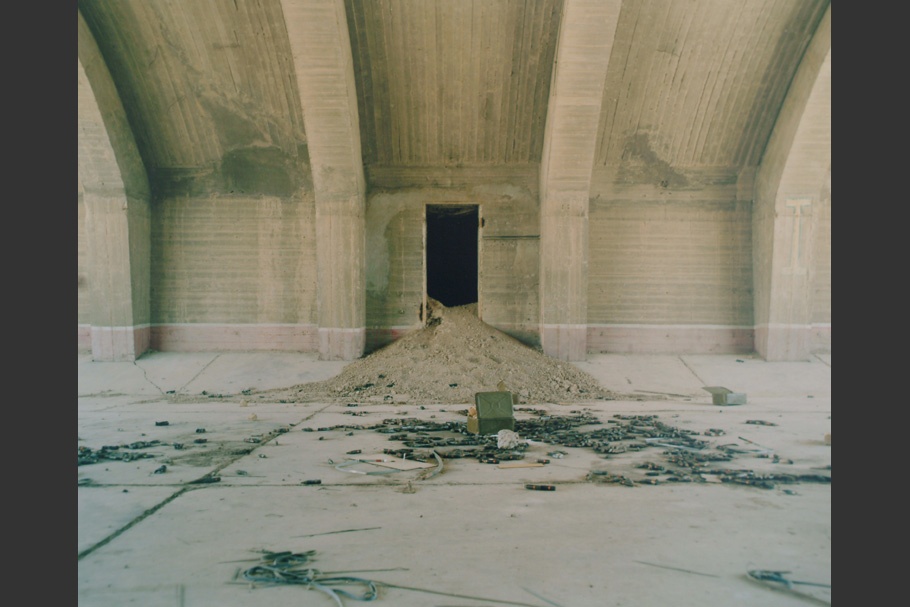
Bunker, Al Rashid Military Base.
Baghdad.
September, 2003.
20040610-hemmerle-mw09-collection-004
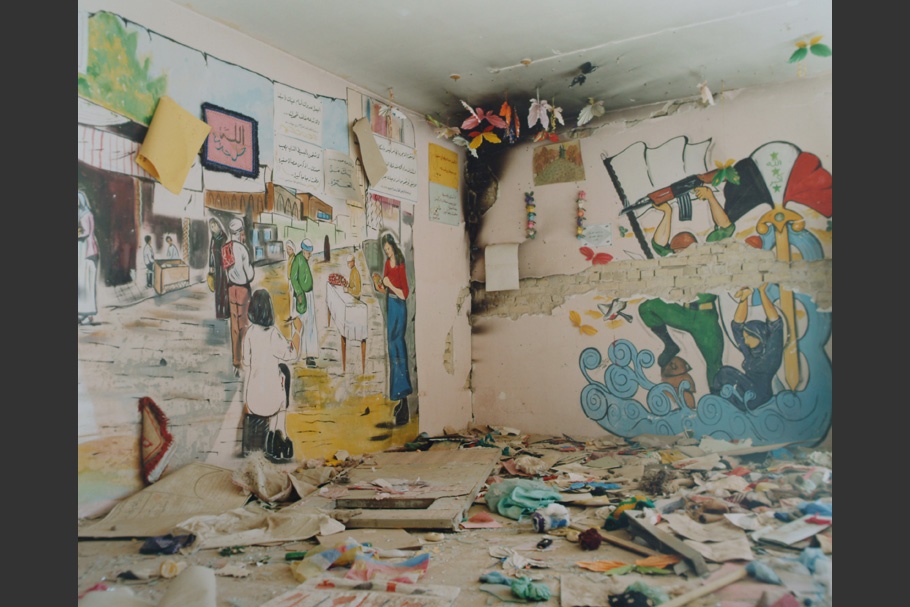
"Future" School for Girls.
Baghdad.
September, 2003.
20040610-hemmerle-mw09-collection-005
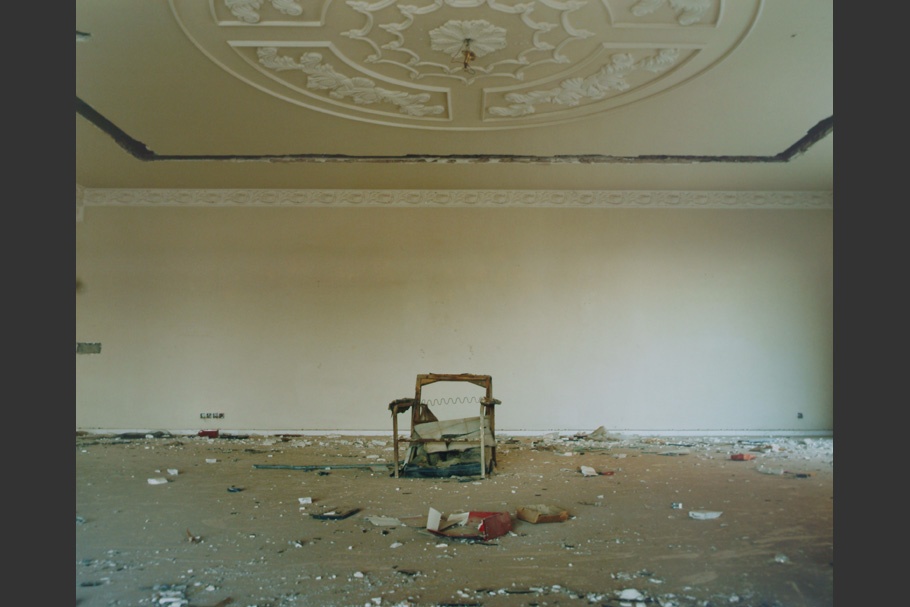
Qusay Hussein's Palace.
Baghdad.
September, 2003.
20040610-hemmerle-mw09-collection-006
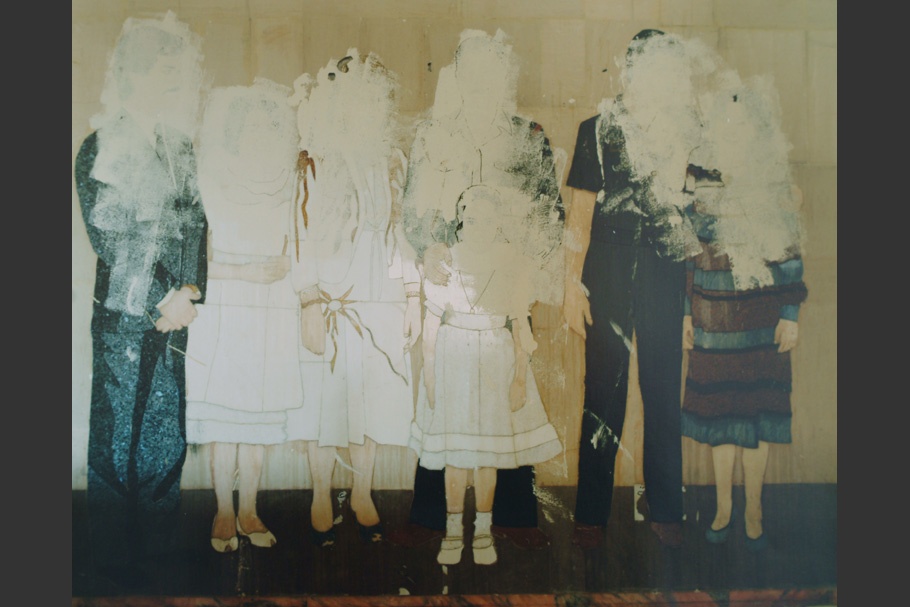
Hussein Family Portrait.
Baghdad.
September, 2003.
20040610-hemmerle-mw09-collection-007
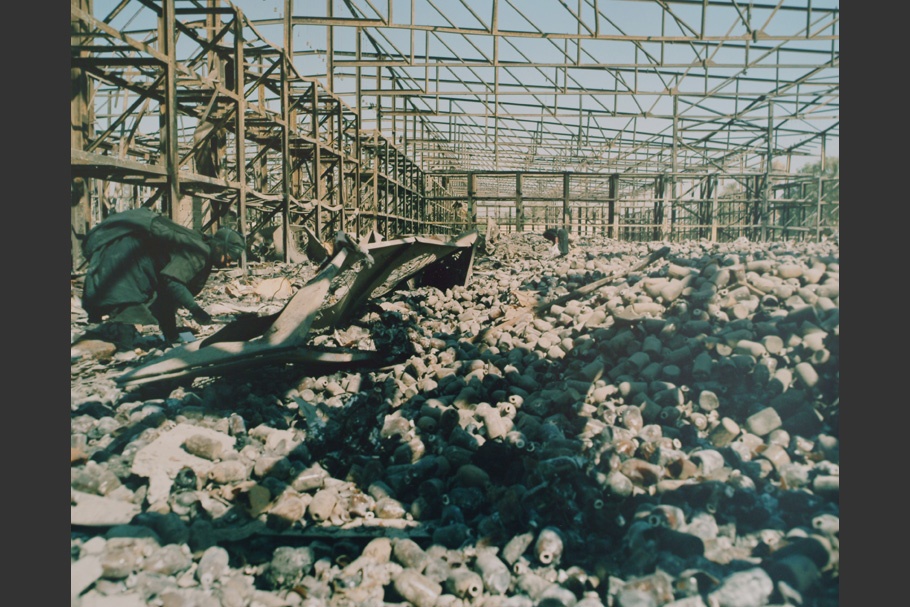
Tylosin Harvest.
Baghdad.
September, 2003.
20040610-hemmerle-mw09-collection-008
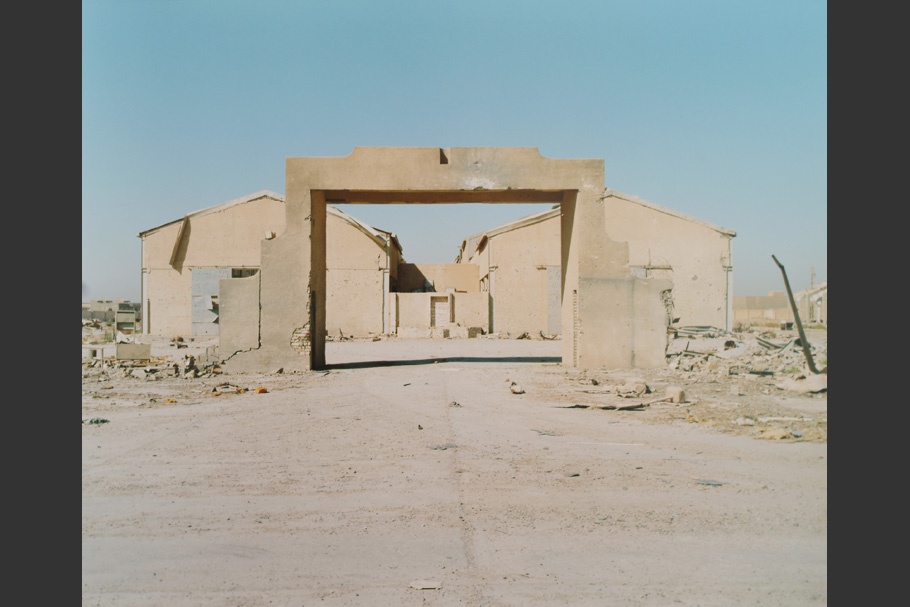
Rocket Factory.
Dora, Baghdad.
September, 2003.
20040610-hemmerle-mw09-collection-009
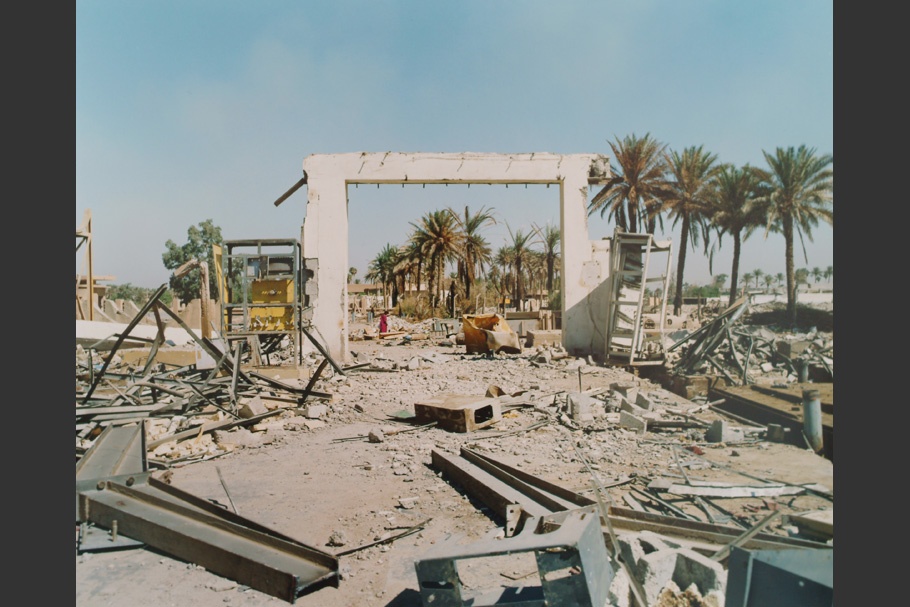
Hospital, Al Rashid Military Base.
Baghdad.
September, 2003.
20040610-hemmerle-mw09-collection-010
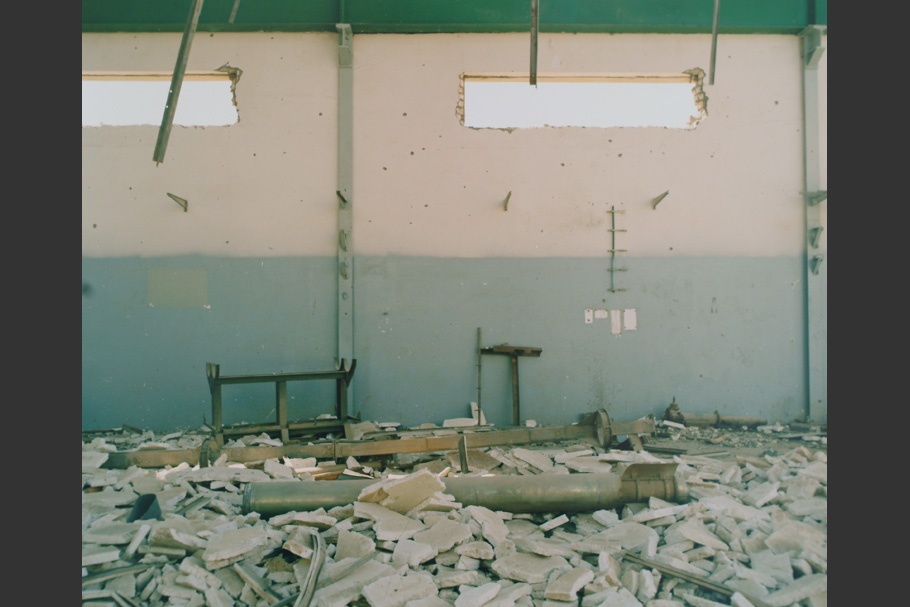
Weapons Factory.
Dora, Baghdad.
September, 2003.
20040610-hemmerle-mw09-collection-011
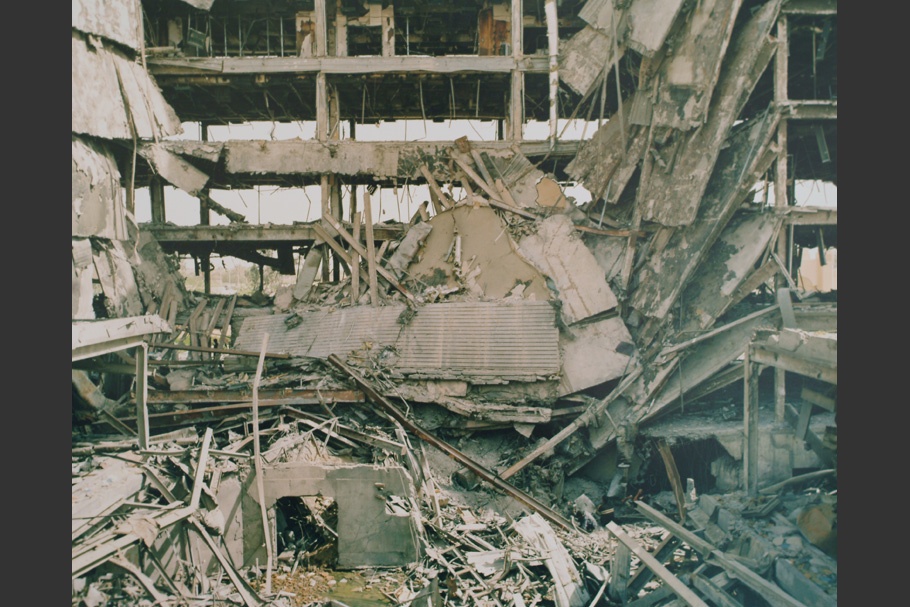
Olympic Committee Building.
Baghdad.
September, 2003.
20040610-hemmerle-mw09-collection-012
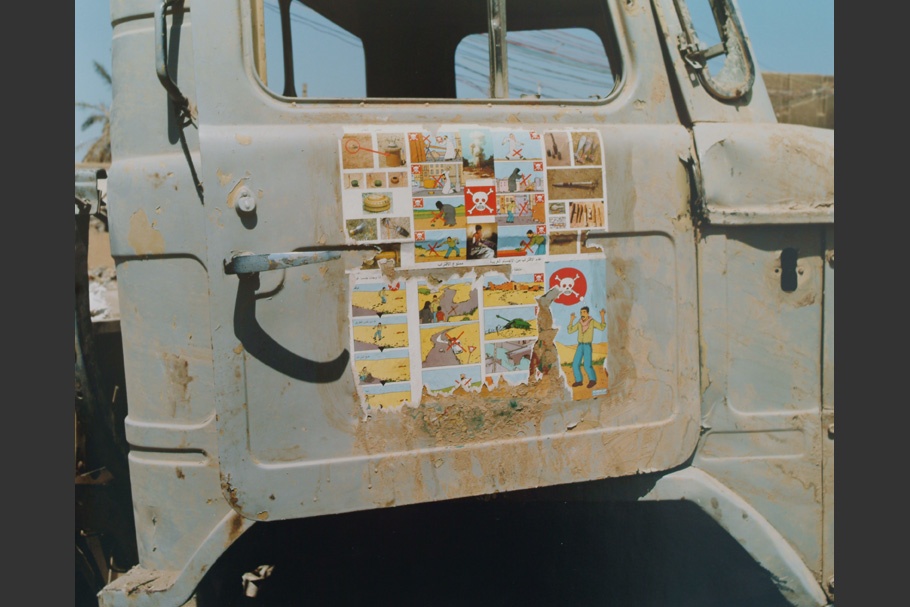
Explosives Warning on Rocket Truck.
Baghdad.
September, 2003.
20040610-hemmerle-mw09-collection-013
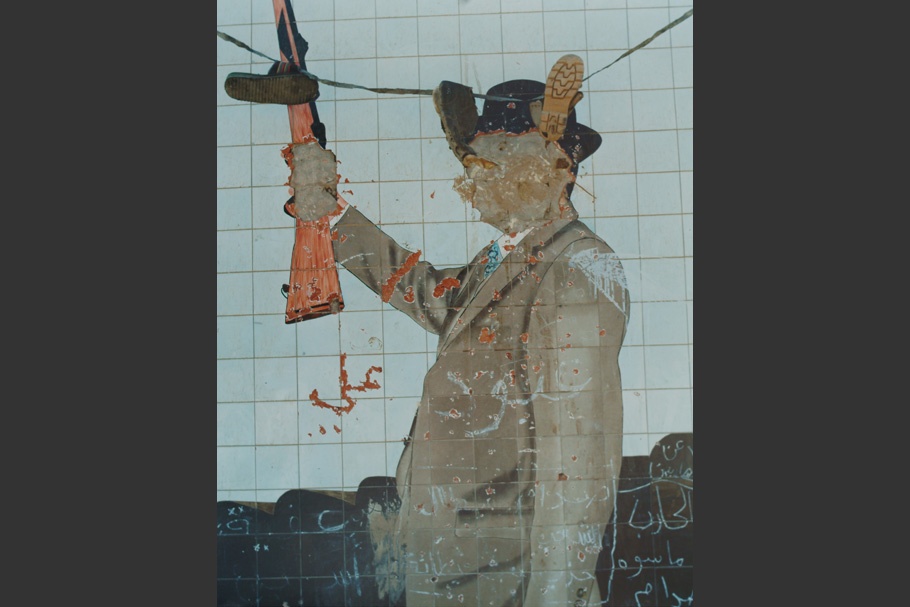
Defaced Sadam.
Baghdad.
September, 2003.
20040610-hemmerle-mw09-collection-014
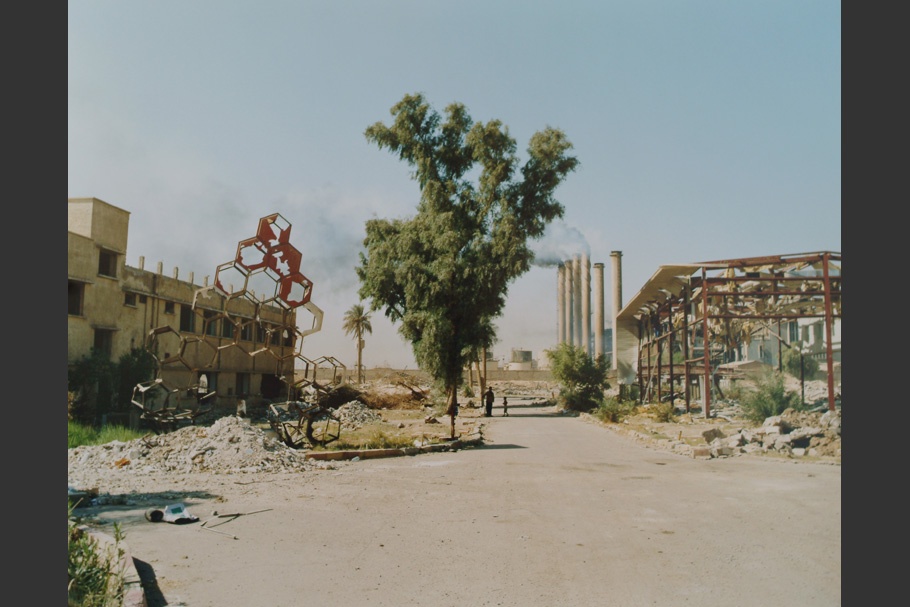
Al Rashid Military Base.
Baghdad.
September, 2003.
Sean Hemmerle is a Brooklyn, New York–based photographer. Prompted by the events of September 11, 2001, Hemmerle followed up his photographs of Ground Zero with projects that documented the American war on terror: Afghanistan in February 2002 and Iraq in September 2003. Hemmerle, who is working on a project about the American media, plans to return to Baghdad.
His photos appear regularly in Time, New York, Metropolis, and the Columbia Journalism Review. His photos have twice been selected for Time's Photos of the Year, and his work was included in Photo District News’s Photo Annual 2002.
Hemmerle was born in Tempe, AZ, in 1966. He earned his B.A. at the University of Miami and his M.F.A. at the School of Visual Arts. He served in the United States Army from 1984 to 1988, receiving an honorable discharge with the rank of sergeant.
Sean Hemmerle
This is a significant junction in history. As an American artist, it is my responsibility to develop a cultural dialogue that extends beyond ego and political rhetoric. I strongly disagree with the direction my country has taken in response to the events of September 11, 2001. I believe that Americans have been misled by the current administration to fear that the threat of terrorism is constant and imminent and that an ideologically based global war is the answer to a small group of fanatics opposed to American global ascendancy.
In September 2003, I went to Baghdad to photograph the results of the war on terror. Before leaving, I did months of research, interviewed journalists who had been there, and read everything I could find on the subject. I thought I knew something about the Fertile Crescent and U.S. military operations. When I arrived, I was overwhelmed by the hospitality of the occupied and their ingenuity. The people of Iraq were suffering under a new military dictatorship and a “democratic” revolution as bloody as any conducted by previous rulers. My country’s hostile and wrongheaded occupation was just beginning to be reported in the American press, but on the streets of Baghdad, it was obvious that a formidable cultural rift was forming between the occupiers and the occupied.
September 13, 2003
I walked through the remains of the Iraqi Olympic offices this morning. One very large bomb exploded near the base of the modernist six-story, block-long structure, fractured it from top to bottom, ripped a crater 20 feet deep, and collapsed portions of the floors above. No interior walls remain on the first two floors. The exterior melts and disintegrates in a Claus Oldenberg fashion. On the upper floors, remnants of the office activities lay scattered chaotically; most are ashen. The area smells like Ground Zero did on September 11th.
A family now lives on the premises and is constantly scavenging any useable materials. One man walked with me through the floors, making charade gestures of airplanes dropping bombs, explosions, and men firing rifles. Occasionally he would stand with arms raised, palms up, and frown at me quizzically. He asked me where I was from. I told him, ‘Mexico.’
Since the repercussions of the war in Iraq will be felt for decades to come, both in the Middle East and at home, it is necessary to see through the confusion that war creates in order to deal with its consequences. The notion of an Evil Empire in a far-off land with a citizenry of terrorists should be reconsidered. America’s responsibilities, as the first country to adopt a Bill of Rights and as the only remaining global superpower, extend beyond the current “us versus them” diplomacy. The obligation of leading by example is America’s when building nations, and it grows exponentially after razing states.
—Sean Hemmerle, June 2004